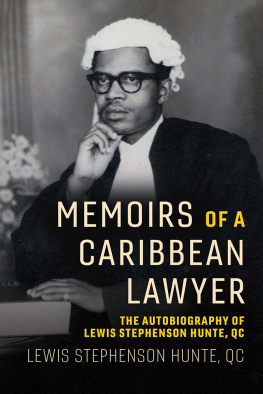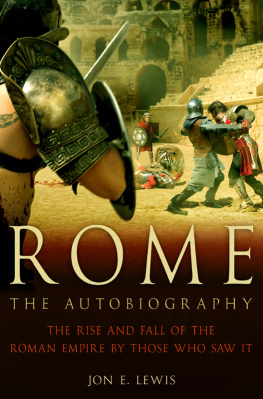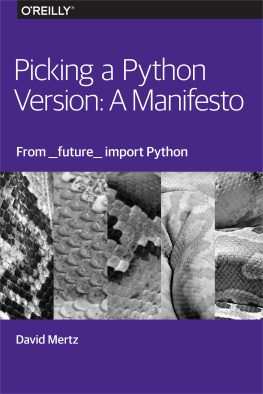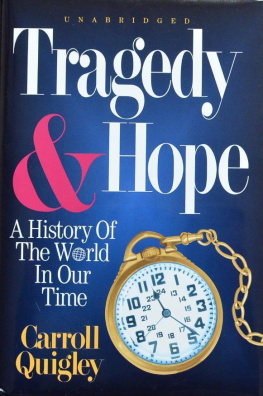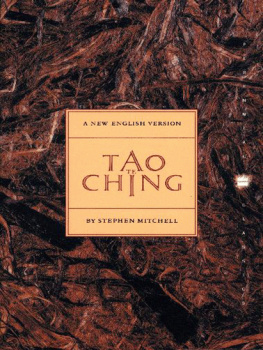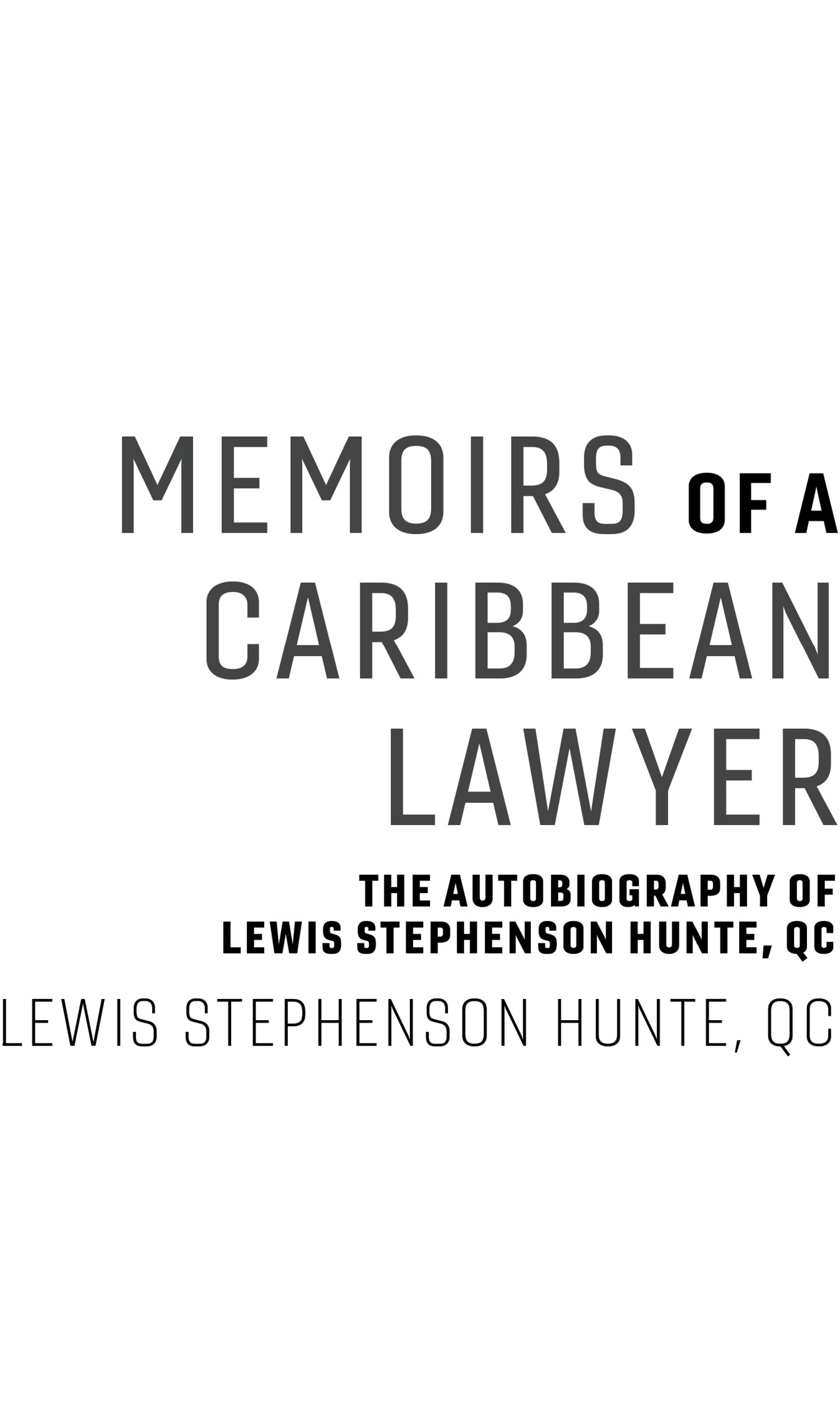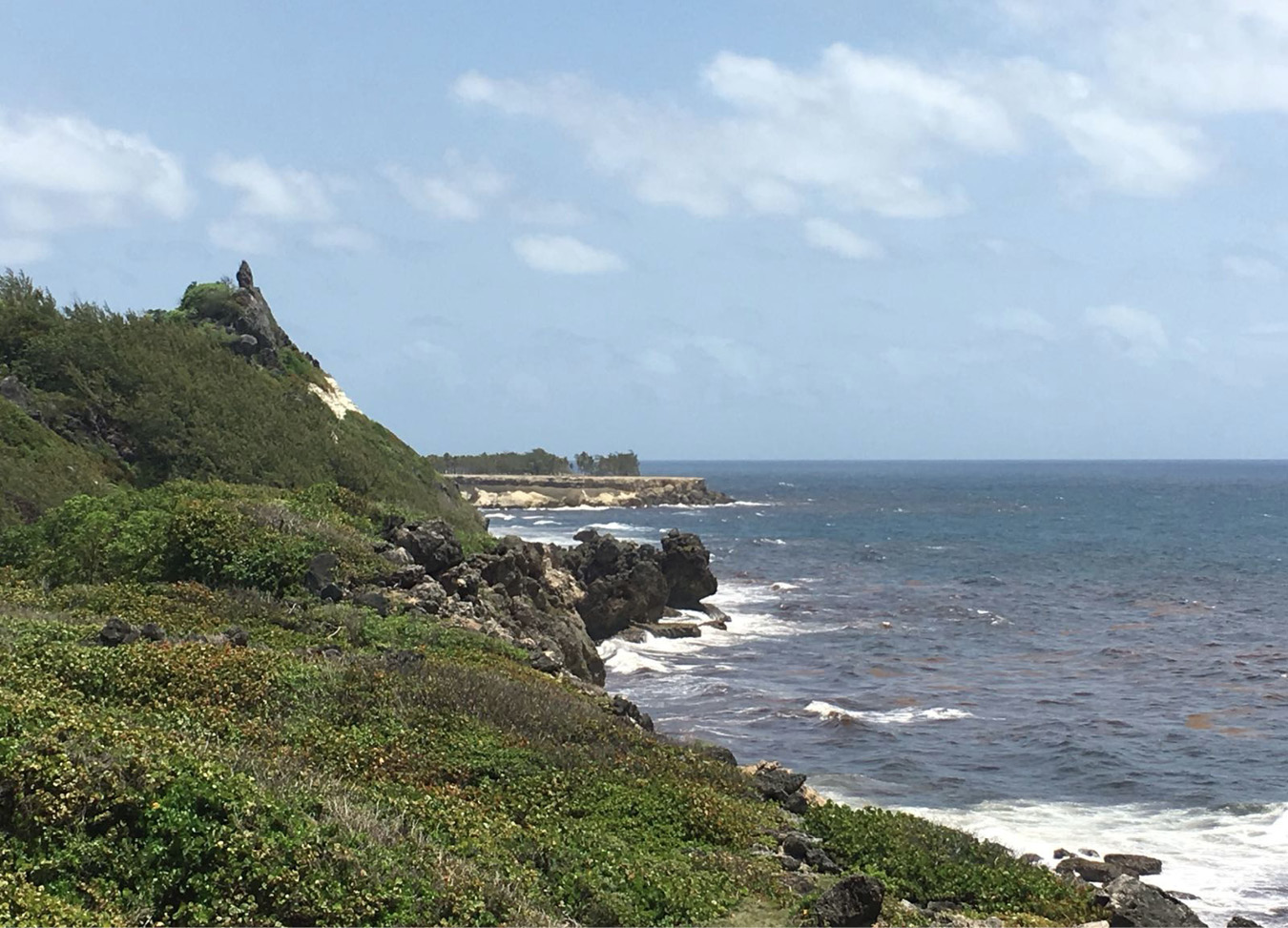Copyright 2018 by Lewis S. Hunte, QC
All rights reserved. This book or any portion thereof may not be reproduced or used in any manner whatsoever without the express written permission of the publisher except for the use of brief quotations in a book review.
Print ISBN: 978-1-54394-323-8

To my dear mother, Myrtle Hunte, that wonderful and resourceful lady. Without her love, support, and parental guidance this book would never have been written. And to my wife, Sheila, and family, whose love and dedication have been a constant source of inspiration.
I.
MY ANCESTRY

The British slave trade was legally abolished in the year 1807 by an Act of the British Parliament. Nevertheless, slavery continued in the British Empire until its formal abolition in the year 1834. In spite of the abolition of the slave trade, however, illicit slave trading continued.
There is, on the north-eastern coast of Barbados, a steep point called Pico Tenerife (pronounced Pico Tenerey by the locals who live in the area). It is named after Tenerife, one of the Canary Islands. Near to Pico Tenerife is a rocky inlet called Grants Bay, where the waves break violently against the rocks during high tide and in bad weather.
I frequently visited Grants Bay when I was a boy, and I was accustomed to hearing locals refer to a particular area of the Bay as the shipwreck or behind the beam. It never occurred to me at the time, though, to make any inquiries into the origin of those namesonly much later in life did I learn that a ship was, indeed, once flung against that rocky shore. No captain would be foolish enough to attempt to bring a vessel ashore on the north-eastern part of Barbados; therefore, considering that the wreck occurred during the early 1830s, it is most likely that it was caused by the powerful hurricane of 1831 that devastated Barbados. That ship was a slave ship.
There was a single survivor from the wreck. He was an African. This sole survivor was rescued by the grandparents of my maternal grandmother. He was clothed and taken to live with them. There is no known record of the name of that survivor or of the names of his rescuers, but the rescued man demonstrated his gratitude by marrying one of their daughters.
Area of the shipwreck at Grants Bay
One of sons of the union bore the name Wellington Hurley. He was the father of my maternal grandmother, who was born on 26 January 1877 and died in November 1969. I, myself, never met Wellington Hurley, but some of my older siblings did. Although his name was Wellington, he was popularly known as Bubba. My mother, uncles, and aunts spoke fondly of Grand Bubba; but even then, I did not realise that Bubba was an African name.
It was when I was a student in London, during the Civil Rights Movement of the 1960s in the United States, that a Nigerian student by the name of Nicholas Udochi and I were discussing Malcolm X. The discussion was centred on the issue of surnames and the reason why black persons from British colonies bore English surnames, those from French colonies bore French surnames, those from Dutch colonies bore Dutch surnames and those from the Spanish and Portuguese colonies also bore the names of the colonizers. Incidentally, I mentioned the name Bubba. Udochi, with a startled look said, Lewis, that name is African!
The expression of Udochis face as he uttered those words piqued my curiosity. I then mentioned that my grandmother and great aunts were not addressed by their English names. My grandmothers sisters and brother referred to her as Nawya even though the name on her birth and baptismal certificates was Helena. Her youngest sister was never referred to as Miriam, which was her first nameinstead, everyone called her Tutu. Their brother, Thomas was known Tomtom. My Nigerian friend insisted that those were all African names and, thereafter, I began to ponder.
Later, when I heard of Bishop Desmond Tutu, the name was no longer new to me. My eyes became wide open, and I realized for the first time that my ancestor who was rescued from the waves in one way complied with colonial law by allowing his children and grandchildren to be given colonial names; but in another way, defied colonial law and custom by causing them to be addressed by their African names that we wronglyand ignorantlycame to regard as strange nicknames. Unfortunately, that proud tradition seemed to have died with my great-great-grandfather because, after his grandchildren, none of his descendants were thenceforth known by African names.
Just imagine how easily that portion of my ancestral history could have faded into oblivion if I did not have that impromptu chat with Nick Udochi. Coincidentally, the middle name of my second daughter is Serwa, which is an African name meaning noble woman.
I did not know my fathers parents; they passed away before I was born. Consequently, I do not know any part of our African heritage passed on by his ancestors. Undoubtedly, there are many other families of African descent who have stories such as mine to relate and they should record them before they are lost.
My ancestors from my maternal grandfathers side were of a different hue. They were descendants of a Spaniard by the name of Lopez, sometimes written Lopey, but they all originated from the same ancestry. It is only a style of handwriting that caused the letter z to be mistaken for the letter y, thus causing some of them to bear the name Lopey instead of Lopez.
The original Lopez is said to have been excommunicated by the Pope. He sailed from Spain during one of the later voyages of Columbus, which suggests that he could have been one of the Protestant supporters of Martin Luther during the Reformation Periodwhich most likely resulted in expulsion from Spain, as the Spanish Monarchy supported the Pope. Whatever the reason, he came to the Caribbean with Columbus and remained in the Caribbean. This bit of family history is obscure and it is unclear how Lopez came to live in Barbados, as Barbados was never settled by the Spanish.
The arrival of Mr Lopez (or Mr and Mrs Lopez) in Barbados would have occurred after the British colonized the island, since prior to that colonization it was completely uninhabited save for an abundance of wild pigs left behind by Portuguese explorers who visited the island in 1536. Barbados lies east of the island chain and so the Portuguese most likely stumbled on it on their way to or from Brazil, the fourth largest country in the world and their only colony on the South American continent. They, like the Spanish, were not interested in colonizing the smaller islands of the Caribbean.
The mother of my maternal grandfather was Georgiana Boyce. Her maiden name was Lopey or Lopez, acquiring the surname Boyce through her marriage to Joseph William Boyce Sr. on 29 June, 1880. Although I never met either of them, I often heard my mother speak of Grand Georgie, and judging from the fair complexion of the Boyce and Lopey side of the family, it was obvious that neither Grand Georgie nor her husband was of pure African descent, but rather of a European-African mix. One of their sons, Joseph William Boyce Jr married Helena Jane Nawya Hurley. My mother was their fourth child.

